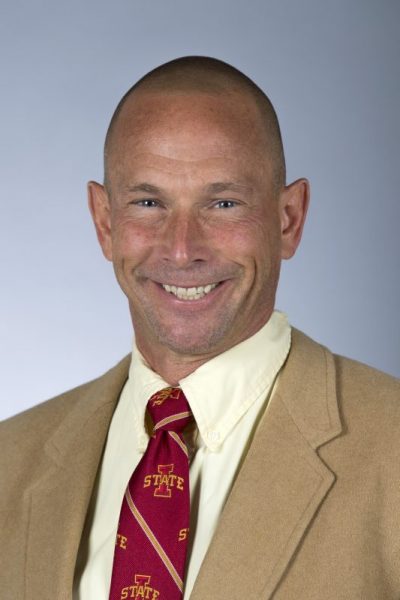
Hal Schenck, professor and chair of the mathematics department, has been named to the 2020 Class of Fellows of the American Mathematical Society (AMS). He becomes the first AMS fellow from Iowa State University.
The AMS selected 52 mathematical scientists from around the world for their outstanding contributions to the creation, exposition, advancement, communication and utilization of mathematics.
“It is a great pleasure to offer my sincere congratulations to the new AMS Fellows, honored for their notable contributions to mathematics and to the profession. We are grateful to the nominators and the members of the selection committee for helping the AMS recognize the achievements of their esteemed colleagues through this fellowship,” said AMS President Jill C. Pipher.
Schenck was cited by the AMS for his contributions to research and exposition in applications of algebraic geometry, and also for his service to the profession.
“I’m honored and humbled to be selected as an AMS fellow,” Schenck said. “A recognition like this is shared with my department and my collaborators, with whom I’ve taught and conducted research during my career. This award really goes to them.”
Broad-based accomplishments
Since being named chair in 2016, Schenck has ushered in broad and ambitious changes to Iowa State’s Department of Mathematics.
The Coordinated Calculus program has transformed how undergraduate calculus classes are taught, adding collaborative, flexible and accessible learning experiences for both students and professors. After Schenck forged a strategic partnership with the Iowa State University Veterans Center, the resulting programs enabled many Iowa State student veterans to refresh and hone their math skills. He also oversaw the development and implementation of a new graduate certificate program, which helps math students from underserved populations transition into the rigors of a graduate mathematics program.
External funding and National Science Foundation (NSF) grant awards have doubled during Schenck’s tenure. This spring, the department secured its first seven-figure award, a $1.5 million NSF Research Training Groups grant.
